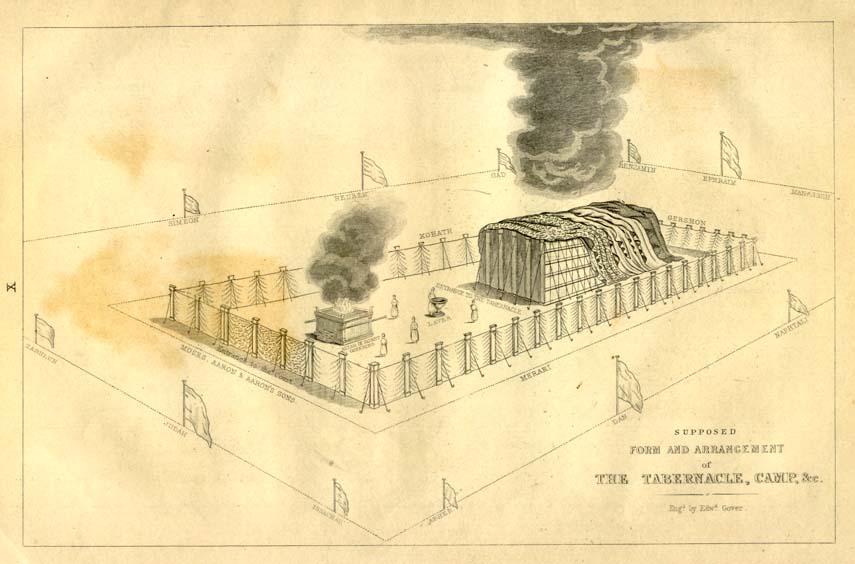
The last topic in the weekly Torah portion of ‘Naso’ {נשא} (found in the Book of Numbers) is the offerings at the Tabernacle’s consecration:
“On the day when Moses had finished setting up the tabernacle and had anointed and consecrated it with all its furnishings and had anointed and consecrated the altar with all its utensils, the chiefs of Israel, heads of their fathers houses, who were the chiefs of the tribes, who were over those who were listed, approached and brought their offerings before the LORD… Then the LORD said to Moses, “Accept these from them, that they may be used in the service of the tent of meeting, and give them to the Levites, to each man according to his service.” (Numbers 7:1-6)
This biblical passage raises two major questions: the first one, is how it can be that on the SAME day that the Tabernacle was set up, anointed and consecrated that all of the chiefs of Israel also managed to bring their offerings?
The second question is regarding a bigger problem and it is related to the chronological order. According to the Book of Exodus, the Tabernacle was set up on the first day of the first month (Exodus 40:2) and according to Numbers, the census of Israel was on the first day of the second month (Numbers 1:2). The Levites were appointed to work at the Tabernacle only AFTER the census of Israel, as recorded in the Book of Numbers:
“Bring the tribe of Levi near, and set them before Aaron the priest, that they may minister to him. They shall keep guard over him and over the whole congregation before the tent of meeting, as they minister at the tabernacle. They shall guard all the furnishings of the tent of meeting, and keep guard over the people of Israel as they minister at the tabernacle.” (Numbers 3:6-9)
So if this is the case, how can it be that the chiefs of Israel brought their offerings to the Levites before the Levites knew their duties at the Tabernacle?
The answer for both questions is found in one simple word – from the original Hebrew – that its wider meaning was missed by the translators of the Bible and so created these two problems – which do not exist at all when understanding the Hebrew Bible in its original language.
The English phrase “on the day” appears in the original Hebrew as ‘Be-Yom’ {ביום} and that is indeed its literal meaning (on the day ).
However, the Hebrew word ‘Yom’, {יום} which means in English day, has another meaning in the Hebrew Bible – the meaning of a period of time in general, as can be found in the two following examples:
“… you may remember the DAY when you came out of the land of Egypt.” (Deuteronomy 16:3)
“As in the DAYS when you came out of the land of Egypt, I will show them marvelous things.” (Micah 7:15)
When the Hebrew preposition Be {ב} (“on the” in this case) comes before the word Yom ( day ) it creates a NEW meaning in biblical Hebrew and that meaning is “at the time of” or simply “when” – as can be found in the following example:
“Then Pharaoh said to him, “Get away from me; take care never to see my face again, for ON THE DAY you see my face you shall die.” (Exodus 10:28)
The meaning of what Pharaoh said to Moses is “at the time of” or “when he will see Moses face” and not specifically on the SAME day.
So in the case of the offerings at the Tabernacle’s consecration which were brought by the chiefs of Israel, when the Bible says “on the day” it really means “at the time” and not on the SAME day.
